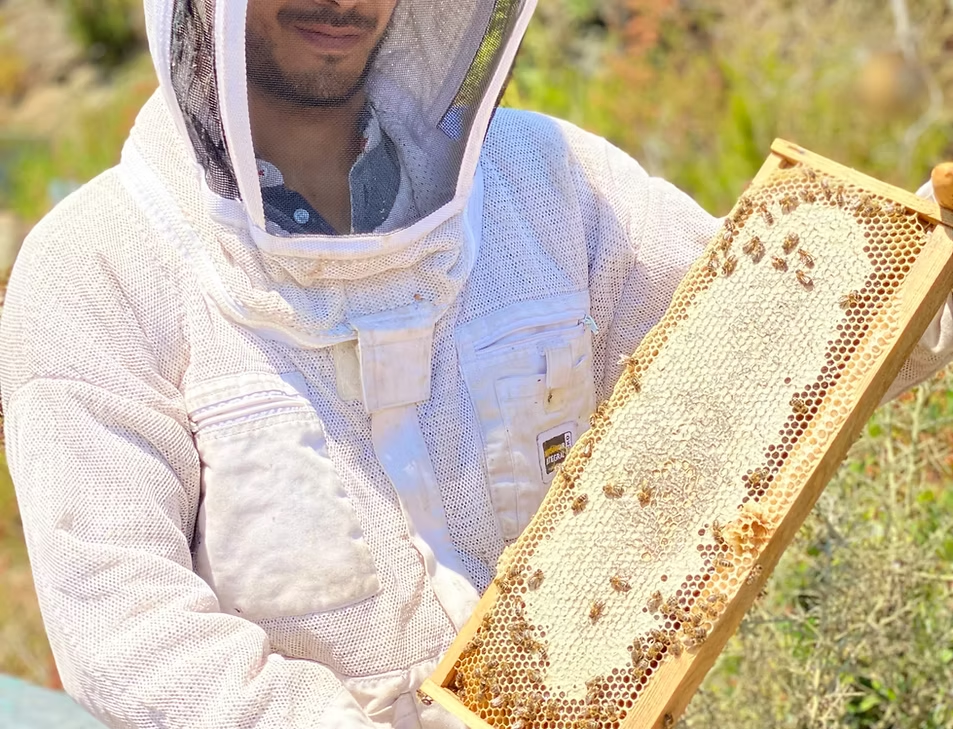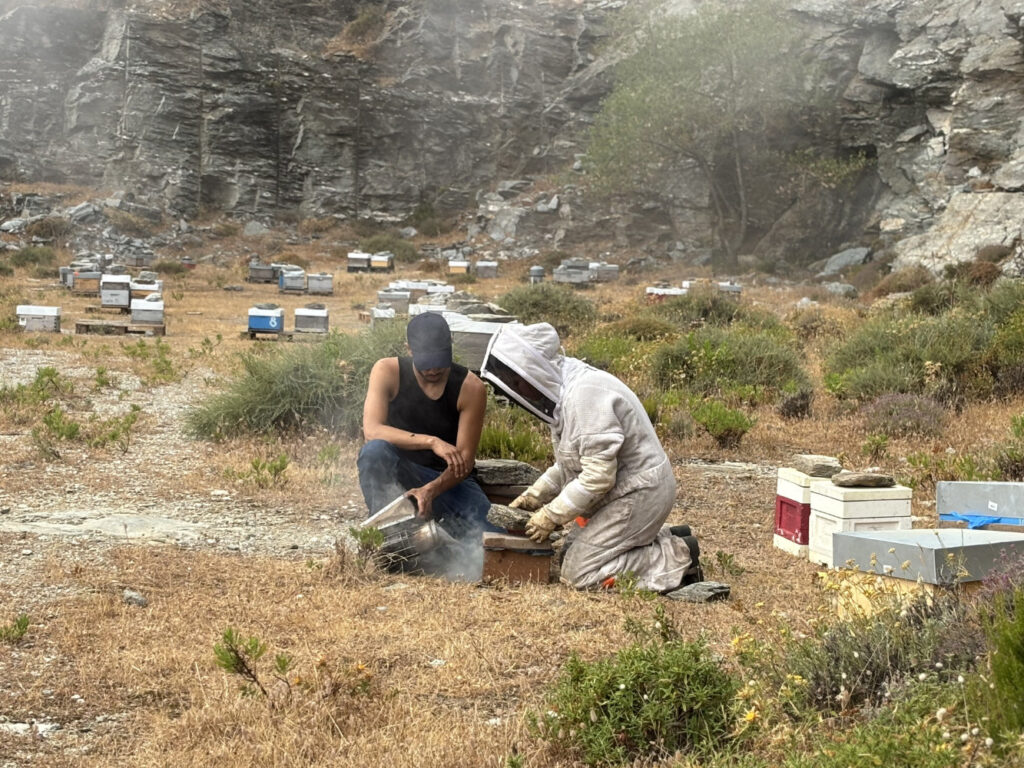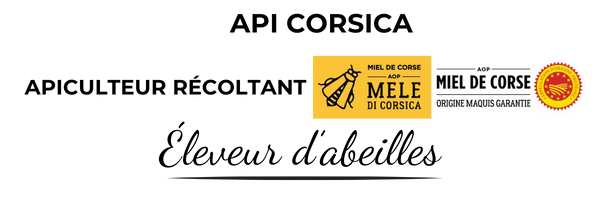L’apiculture – Ma passion

Je m’appelle Alexandre, et je suis apiculteur dans le Cap Corse , une région sauvage et préservée. Depuis maintenant trois ans, l’ apiculture est mon activité principale, une aventure débutée en 2015 , grâce à la rencontre inattendue avec un essaim d’abeilles sur un vieil olivier.
Ce spectacle fascinant, cette grappe bourdonnante , a éveillé en moi une curiosité insoupçonnée.
Après quelques recherches, j’ai découvert qu’il s’agissait d’un essaimage , un phénomène naturel essentiel à la survie des colonies.
Rien dans mon parcours ne me prédestinait à cette passion pour les abeilles , Cette curiosité s’est transformée en un véritable engagement.
J’ai commencé avec quelques ruches, un cheptel.
Une Apiculture Naturelle et Respectueuse
Les abeilles sont mes meilleures enseignantes, et je continue à apprendre chaque jour d’elles : sur la production de miel de qualité, sur la nature corse, et sur l’équilibre fragile des écosystèmes
Je conduis mes ruches de production en cire vierge, laissant mes abeilles bâtir librement selon leurs besoins. Elles savent mieux que moi comment organiser leur habitat. Le miel est récolté seulement lorsque les abeilles estiment qu’il est mûr, en refermant les cellules par une fine couche de cire vierge, un processus appelé operculation.
En parallèle, je propose la vente d’essaims issus de mes colonies. Cela permet aux apiculteurs débutants ou confirmés d’introduire des abeilles noires de Corse dans leurs propres ruchers, contribuant ainsi à la protection de l’abeille et au maintien de cette espèce précieuse. Pour rappel : Il est interdit d’importer des abeilles des abeilles en Corse !

Transmettre ma Passion
Convaincu que la connaissance doit être partagée, j’ai également à cœur de former des apprenants, des stagiaire et des apprentis souhaitant s’initier à l’apiculture durable. Mes formations permettent de découvrir les bases du métier :
- Connaitre les abeilles
- Quels matériels utiliser
- Apprendre à gérer des ruches
- Comprendre l’importance de la pollinisation dans nos écosystèmes etc.
Un Soutien Indéfectible
Dans cette aventure, qui s’apparente parfois à un véritable parcours du combattant, je peux compter sur le soutien indéfectible de ma compagne Noémie, qui partage cette passion et m’accompagne dans chaque étape.
Mon souhait ?
Continuer… En mieux… chaque saison
Faisons que le #sauvonslesabeilles
ne soit pas qu’un simple hashtag !
Faites une immersion en apiculture !
Passons à l’action !!!
Des abeilles
* Les connaître
* Les préserver
* S’en occuper
Des ruches
* Dans votre jardin
* Sur votre terrain
* Sur un toit
Du Miel
* Pour vos papilles
* Pour votre famille
* Parce que ce sera le vôtre
